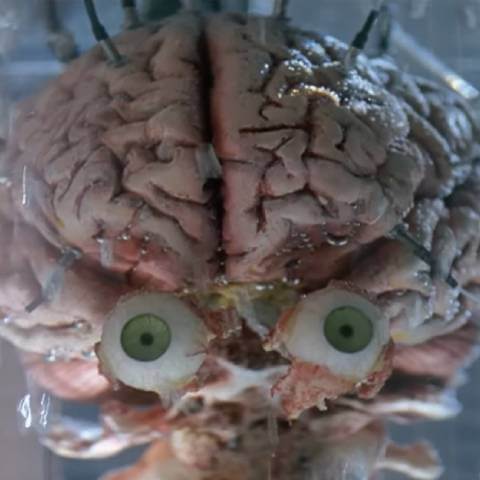
Capping off a year that proved, without a shadow of a doubt, that non-A.V. Club readers are spending too much time ingesting the worst shit imaginable online, the Oxford University Press has named “brain rot” Word of the Year. How else would one describe a year when Donald Trump sparked a dance craze? Maybe we should be thankful that “Hawk Tuah” didn’t make the shortlist.
Yes, we all have brain rot or, at least, think everyone else has it, and so it is Oxford’s word of the year. But while we all use “brain rot” to describe someone who gave themselves brain damage from watching Pinkydoll TikToks and now thinks fluoride is the reason their life isn’t working out so well, the Oxford English Dictionary has a more authoritative definition.
(n.) Supposed deterioration of a person’s mental or intellectual state, especially viewed as a result of overconsumption of material (now particularly online content) considered to be trivial or unchallenging. Also: something characterized as likely to lead to such deterioration.
Oxford says the term comes from a little book called Walden by Henry David Thoreau. Ever heard of it? In the book, while waiting for his mother and sisters to bring him food, Thoreau complained in his conclusion, “While England endeavors to cure the potato-rot, will not any endeavor to cure the brain-rot, which prevails so much more widely and fatally?” Sadly, no one has taken up his cause, and now Earth’s cursed population must endure a lifetime of stories like Cheryl Hines hocking scented candles on Instagram as her husband, Robert F. Kennedy, showers naked behind her.
Brain rot ranks among memes and buzzwords we’ve heard over the last 12 months. The others in Oxford’s shortlist include “Demure,” which is very mindful, “Dynamic Pricing,” “lore,” “romantasy” (the shortlist’s lone portmanteau), and the brain rot-adjacent word “slop.” That last one refers to “low-quality, AI-generated material” that is “increasingly visible to people using internet search engines or social media.” We might have an answer to the question: “What causes brain rot?” It’s almost like they feed us poison, so we buy their cures while suppressing our medicine. Oxford notes that “brain rot” is not a “new or recent concept,” but it has been used more frequently on social media, particularly on TikTok, this year. Between 2023 and 2024, its frequency per million words increased by 250%, which isn’t terrible for a rizz-free society infected with brain rot. Do people still say “rizz”?
